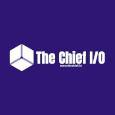Top 51 Kubernetes Tool to Reach the Cloud Native Nirvana
in Kubernetes

This article addresses tools that are used with kubernetes with a very high possibility of easing developers' stress during development, deployment, monitoring, etc.
Most developers in the cloud native world either use Kubernetes or a platform that works with kubernetes like Docker. And at some point, developers, CTO's, CIO's and co will need to adopt one tool or the other to ease the DevOps workflow from building to securing.
51 Kube-related tools have been briefly discussed in this article, arranging them in order of most starred on GitHub to the less starred with links to each tool repository.
Netdata
Netdata is a monitoring tool that collects metrics from systems, hardware, containers, and applications with zero configurations. It can be installed on your systems mid-incident without preparation, and it runs permanently on your servers, containers, IoT devices. Etc.
etcd
etcd is a simple, secure, fast, and reliable key-value store used in storing critical data of a distributed system. It is written in Go language.
Traefik
Traefik is an HTTP reverse proxy tool and load balancer used in infrastructure components like Kubernetes, Docker, Etcd, and co to make deploying your microservices to the outside world easy.
Kong
Kong is an API gateway tool that provides proxying, load balancing, routing, and health checking functionalities. Kong is a scalable, platform-agnostic, and cloud-native tool for orchestrating microservices, and it runs natively on Kubernetes.
MinIO
MinIO is an Amazon S3 compatible Object storage used for storing and building high-performance infrastructures. It is released under GNU Affero Public License v3.0.
Istio
Istio is an open source platform with components like Envoy, Istiod, Pilot Citadel, Galley, and Operator for microservices traffic management, Microservices integration, telemetry data aggregation, and policy enforcement.
Consul
Consul is a solution for connecting and configuring applications across dynamic, distributed infrastructures. It is a highly available, distributed, and datacenter-aware solution with features like service mesh, multi-datacenter, health checking, and key storage. Consul can run on Windows, macOS, Linux, Solaris, and FreeBSD. Consul has an optional browser-based UI and a commercial version called Consul Enterprise.
minikube
minikube is a tool for local kubernetes application development that implements local Kubernetes clusters on local developer machines like Windows, macOS, and Linux.
minikube supports standard kubernetes features including NodePorts, Loadbalancer, Dashboard, Container runtimes, Multi-cluster, Ingress, etc., and also runs on Kubernetes latest stable release. minikube also supports developer-friendly features like NVIDIA GPU support, Addons, and Filesystem mounts.
Dokku
Dokku is a mini-Heroku that offers a platform as a service (Paas) for deploying and managing applications. Dokku is the Docker-powered tool of Heroku Paas that runs on Ubuntu, Debian, CentOS, and Arch Linux.
OpenFaaS
OpenFaaS is a tool for deploying microservices and event-driven functions to kubernetes without repetitive coding. It helps you package your already existent code or binary in an OCI-compatible image and auto-scales to get a highly scalable endpoint.
Helm
Helm is a tool used to streamline the installation and management of Kubernetes applications and Charts. Its uses are basically to create reproducible Kubernetes application builds, run Helm Charts in Kubernetes, intelligently manage manifest files in Kubernetes, and manage Helm packages release.
Nacos
Nacos, an Alibaba middleware project, is an easy-to-use platform used in building cloud-native applications and microservices platforms. It is a platform designed for service discovery and service health checks, dynamic configuration management, dynamic DNS service, and service and metadata management.
Portainer
Portainer is a platform for easy Kubernetes and Docker management. Portainer has two different editions; the first edition is the Portainer Community Edition used in managing Docker kubernetes, Swarm, and ACI environments. It is a lightweight service delivery platform designed to manage all orchestrator resources, including images, containers, volumes networks, and so on, through an extensive API
Portainer Business Edition is used mainly for business owners, whereby it builds on the open source base with a range of advanced features and functions consisting of RBAC and Support.
K3s
K3s is a production-ready, lightweight kubernetes distribution used for development, IoT, ARM, Edge, and Embedding K8s. k3s is a fully conformant, single binary Kubernetes distribution that is less than 100MB. A few K3s features are having little to zero OS dependency, wrapping Kubernetes in a single launcher, and adding support for sqlite3, among others.
Rancher
Rancher is an open source platform for container management. It is built for deploying containers in production. Rancher offers some set of infrastructure services like load balancing, volume snapshots, and multi-host networking. Rancher makes running Kubernetes easy, and it integrates Docker management capabilities.
Lens
Lens is a Kubernetes IDE that gives all the situational awareness of everything running in Kubernetes. It is a distribution of OpenLens repo, and It's a standalone application that works on Windows, macOS, and Linux.
Dapr
Dapr is an event-driven, portable, and serverless runtime that enables the building of resilient, stateless, and stateful microservices. Dapr enables you to build microservices applications with a language and framework of your choice. A few of the uses of Dapr are the provision of consistency and portability through open APIs, solving challenging problems developers face during building by providing best practice building blocks, and the ability to be cloud-agnostic across cloud and edge, among others.
K9s
K9s is a Kubernetes CLI for Kubernetes. It has a terminal UI for interacting with kubernetes clusters, making navigating, observing, and managing applications easy.
SeaweedFS
It is a distributed storage system. It is a fast and highly scalable file system for storing billions of files while serving them fast. SeaweedFS can integrate with the cloud and gain fast local access time and elastic cloud storage capacity with hot data on the local cluster and warm data on the cloud. The cloud storage access API is also faster and cheaper than direct cloud storage.
Vitess
Vitess is a database clustering system that lets application code, and database queries remain agnostic to data distribution onto multiple shards by encapsulating shard-routing logic. It is used for horizontally scaling MySQL with generalized sharding, and you can even split and merge shards as your needs grow. Vitess is the core component of Youtube's database infrastructure, and it has been that way since 2011.
Skaffold
Skaffold is a command-line tool used in handling building, pushing, and application deployment workflow. It is a tool used to facilitate continuous development for Kubernetes applications. Skaffold has some features that come with it: project portability, fast local development, pluggable, declarative project configuration, and lightweight. It also describes CI/CD pipeline customizations and provides building blocks for development.
gVisor
gVisor is an application kernel for containers written in Go. It has an Open Container Initiative (OCI) runtime used for isolating applications and the host kernel. gVisor is an application kernel that has features that protect containers from container escape vulnerability. gVisor does not require a fixed set of physical resources, i.e., it implements Linux by way of Linux.
Kubectx
It is a tool used in switching between clusters and namespaces in Kubectl. The Kubectx repository provides both Kubectx and Kubens tools. Kubectx is the tool to switch between clusters on kubectl, while Kubens is used to switch between Kubernetes namespaces on kubectl easily.
Ingress-NGINX
NGINX is a tool used as a reverse proxy and load balancer for kubernetes, while ingress-nginx serves as a Kubernetes ingress controller.
Kubespray
Kubespray is a tool used for deploying a production-ready Kubernetes cluster. It can be deployed on GCE, AWS, Azure,vSphere, etc. Kubespray is a composable tool with features like continuous integration tests and supports popular Linux distributions.
Jib
Jib is a tool for building container images like optimized Docker and OCI images for java applications. Jib can be used to build Docker images without the full-fledged mastery of Docker and without a daemon. Jib is a tool that allows fast deployment, reproducible container images, and daemonless building. It is available as plugins for Gradle and Maven and also as a Java library.
Kubeflow
Kubeflow is a cloud-native machine learning operations platform. Kubeflow has features like pipeline, training, multi-framework, model serving, and deployment. kubeflow is a toolkit that is used in making machine learning workflow simple, portable and scalable.
Teleport
Teleport is a multi-protocol, identity-aware access proxy. It is a tool that understands Kubernetes API, HTTPS, SSH, PostgreSQL, and MySQL wire protocols. It is a single binary secure access tool to resources like SSH nodes, networked servers, internal Web apps, Kubernetes clusters, etc. Teleport is built on Golang SSH implementation and is compatible with sshd servers, OpenSSH, and ssh Clients.
Dashboard
Dashboard is a general-purpose tool for kubernetes. It has a web-based UI and lets users efficiently use applications running in the cluster and self-managing the cluster.
Containerd
Containerd is a simple, portable, and robust industry-standard container runtime. It is a tool that can run and manage the container lifecycle of its host. It is available as a daemon for Windows and Linux, and it is a member of CNCF.
Cilium
Cilium is an open source security network connectivity software. It is used for load balancing between application containers and workloads. It operates at Layer ¾ and provides additional security services as well as traditional networking. It also operates Layer 7 for protecting and securing modern application protocols like gRPC, HTTP, and Kafka. eBPF is at the foundation of cilium, and cilium is integrated into orchestration frameworks like Kubernetes.
Kaniko
Kaniko is a too used to build container images in Kubernetes. The images will be built from a Dockerfile without using a daemon. Kaniko enables building a container image in environments that can't run a daemon easily or securely.
Trivy
Trivy is a vulnerability scanner in container images, Git repos, file systems, and configuration issues.
Trivy scans IaC, detects language-specific packages and OS packages. Its features are but are not limited to, DevSecOps, misconfiguration detection, comprehensive vulnerability detection, multiple target support.
Rook
Rook is a cloud-native, open source Kubernetes storage orchestrator. It is a tool that provides the support, platform, and framework for diverse storage solutions to integrate with cloud-native environments natively. Rook is a tool that makes storage software become self-healing, self-managing and self-scaling.
Kind
Kind a tool that uses Docker container nodes to run local Kubernetes clusters. It was primarily developed for testing Kubernetes. Kind consists of Docker images, Go packages, Command-line interface, and Kubetest integration. Kind bootstraps each node with Kubeadm
Clair
Clair is an open source tool for vulnerability static analysis of application containers like OCI and Docker. Clair API can be used to index container images to match against known vulnerabilities.
Kubesphere
Kubesphere is a tool used for managing cloud-native applications while using kubernetes as its kernel.
Kubespehere has a developer-friendly wizard web UI and provides a plug-and-play architecture. The tool helps enterprises build a more robust and feature-rich platform, including all the needed functionalities for a Kubernetes enterprise strategy.
cert-manager
Cert-manager is a Kubernetes addon used in automating the management and issuance of TLS certificates. It ensures the certificates are always valid and up to date, thereby attempting certificate renewal before expiring.
Kustomize
It is a tool used in customizing template-free, raw YAML files. The tool will not let your file be touched and be usable as-is. Kustomize is mainly for Kubernetes and can patch Kubernetes API style objects. Kustomize allows you to ake a customization file and also create variants using overlays.
Linkerd
Linkerd is a service mesh for Kubernetes. It is an ultralight, security-first tool that adds critical security, reliability, and observability features to your Kubernetes without code change.
Linkerd is a CNCF project
Apache APISIX
Apache APISIX is an API gateway that provides traffic management features like canary release, circuit breaking, load balancing, authentication, dynamic upstream, etc. Apache APISIX is a dynamic, high-performance tool that can handle east-west traffic and north-south traffic between services.
ArgoCD
ArgoCD is an easy-to-understand GitOps continuous delivery tool used in Kubernetes application deployment and automated lifecycle management. It is a declarative tool used to define applications and version control its environment.
Kompose
Kompose is a convenience tool that enables Docker users to use Kubernetes. The tool is used in translating Docker Compose files to Kubernetes resources. You can use it to convert docker-compose.yaml to Kubernetes deployments and services. Though the conversion might not be exact, it does a larger percentage of the job.
OpenEBS
OpenEBS is an open source, cloud native storage solution that supports a range of storage engines. It is a storage solution built with the microservices architecture as the application it serves.
Flannel
Flannel is a network fabric responsible for allocating a subnet lease to hosts from a preconfigured address space. Flannel is designed for Kubernetes, and it uses etcd or the Kubernetes API to store the allocated subnets, configuration data, and any auxiliary data.
Kubeless
Kubeless is an open source Kubernetes-native serverless framework that enables the deployment of small bits of code regardless of the underlying infrastructure plumbing. It provides API routing, monitoring, troubleshooting, and more using Kubernetes resources.
Tekton Pipeline
Tekton Pipeline is a cloud native, decoupled, and typed pipeline that provides kubernetes style resources for declaring CI/CD style pipelines.
Fission
Fission is a high-performance serverless framework specifically designed for developers' productivity. It is a fast tool that operates on code and is extensible to any programming language. Its core is written in Go, while the language-specific parts are isolated in its environment. Fission supports any Linux executable language and Python, PHP, Ruby, NodeJS, etc.
Che
Che is a Kubernetes-native tool for developers. It is a tool that has everything a developer needs for easy development workflow, including a web IDE, project code, embedded containerized runtimes, and dependencies. All these collections of tools are all placed into a container in a Kube pod.
Microk8s
Microk8s is a lightweight Kubernetes package for developer workstations, IoT, edge, and CI/CD. Microk8s is small, simple, secure, always current, and comprehensive. Microk8s works with 42 flavors of Linux.
Get similar stories in your inbox weekly, for free
Share this story:

The Chief I/O
The team behind this website. We help IT leaders, decision-makers and IT professionals understand topics like Distributed Computing, AIOps & Cloud Native
Latest stories
How ManageEngine Applications Manager Can Help Overcome Challenges In Kubernetes Monitoring
We tested ManageEngine Applications Manager to monitor different Kubernetes clusters. This post shares our review …
AIOps with Site24x7: Maximizing Efficiency at an Affordable Cost
In this post we'll dive deep into integrating AIOps in your business suing Site24x7 to …
A Review of Zoho ManageEngine
Zoho Corp., formerly known as AdventNet Inc., has established itself as a major player in …
Should I learn Java in 2023? A Practical Guide
Java is one of the most widely used programming languages in the world. It has …
The fastest way to ramp up on DevOps
You probably have been thinking of moving to DevOps or learning DevOps as a beginner. …
Why You Need a Blockchain Node Provider
In this article, we briefly cover the concept of blockchain nodes provider and explain why …
Top 5 Virtual desktop Provides in 2022
Here are the top 5 virtual desktop providers who offer a range of benefits such …
Why Your Business Should Connect Directly To Your Cloud
Today, companies make the most use of cloud technology regardless of their size and sector. …
7 Must-Watch DevSecOps Videos
Security is a crucial part of application development and DevSecOps makes it easy and continuous.The …








